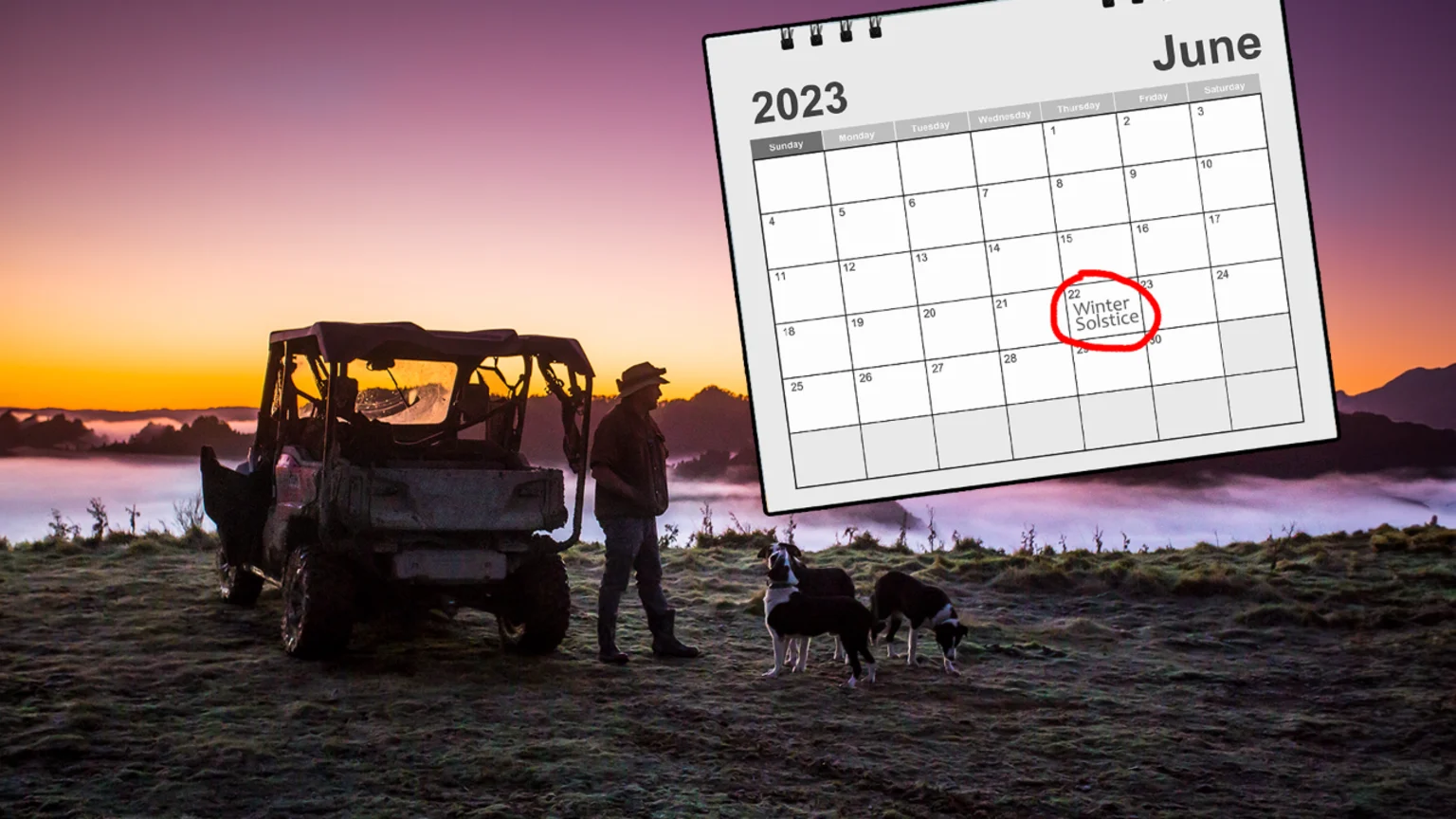Rural
Mark your calendars because the shortest day of 2023 is just around the corner

Published by Dominic George
21 Jun 2023
The winter solstice (also known as the hibernal solstice), occurs once a year in each hemisphere when either of Earth's poles reaches its maximum tilt away from the Sun creating the shortest day of the year.
For the Southern Hemisphere, that day will be tomorrow, Thursday, June 22nd with the actual solstice occurring at 2:57 am NZT for Kiwis.
Weather Watch Chief Executive Phil Duncan told REX host Dominic George a lot of printed calendars mark events like the Winter Solstice on UTC, the time in Greenwich, England, not New Zealand time.
"You quite often will find a disconnect between a bunch of New Zealanders that support it one day too early and another lot that support it at the right time and that happens every year because of calendars," Duncan said.
For those wondering what exactly happens at 2:57 am when the Winter Solstice happens, WeatherWatch NZ writes "After this moment, the earth begins its gradual roll back towards summer for the Southern Hemisphere.".
"Solstices occur because Earth's axis of rotation is tilted about 23.4 degrees relative to Earth's orbit around the sun. Tomorrow the sun will be at it's northernmost point – bringing the day with least amount of sunlight to the Southern Hemisphere and the 'longest day of the year' to the Northern Hemisphere," they wrote.
Read the full press release about the Winter Solstice from WeatherWatch NZ here or click the link above.
Don't get too excited just yet though, because Duncan said the increase is incremental and hardly noticeable for around a month.
"It's normally the very last week of July, that's when farmers first say to us, 'we are noticing the sun get up just a little bit earlier in the morning' and then it usually takes the city people until the start of August, until they notice it too.
"I think Saturday is one second longer than Thursday."
He added that although the days will get longer as we move into July and August, they are likely to get colder too, with the coldest temperatures arriving after the Winter Solstice.
"The coldest weather tends to arrive after this point. So July, August and sometimes the start of September can be the coldest months of the year."
Listen to the full chat between Weather Watch Chief Executive Phil Duncan and Dominic George above.
To check out more episodes listen to the REX Today Podcast anytime on your favourite streaming platforms including Spotify, Apple Music and Rova or tune in to REX Today live on Magic from 5 am to 6 am every weekday.
Visit the Rural Exchange Facebook or Instagram page for more information and regular updates from the REX team.
Published by Dominic George
21 Jun 2023